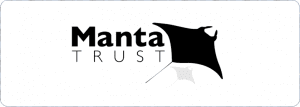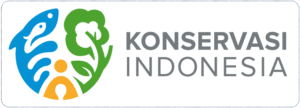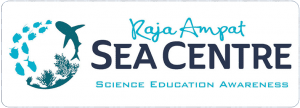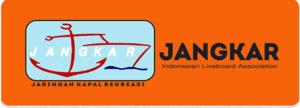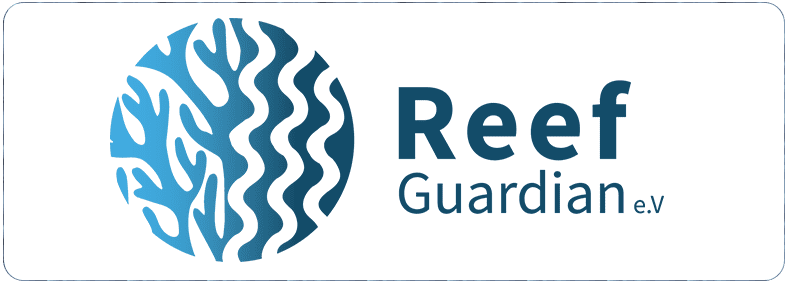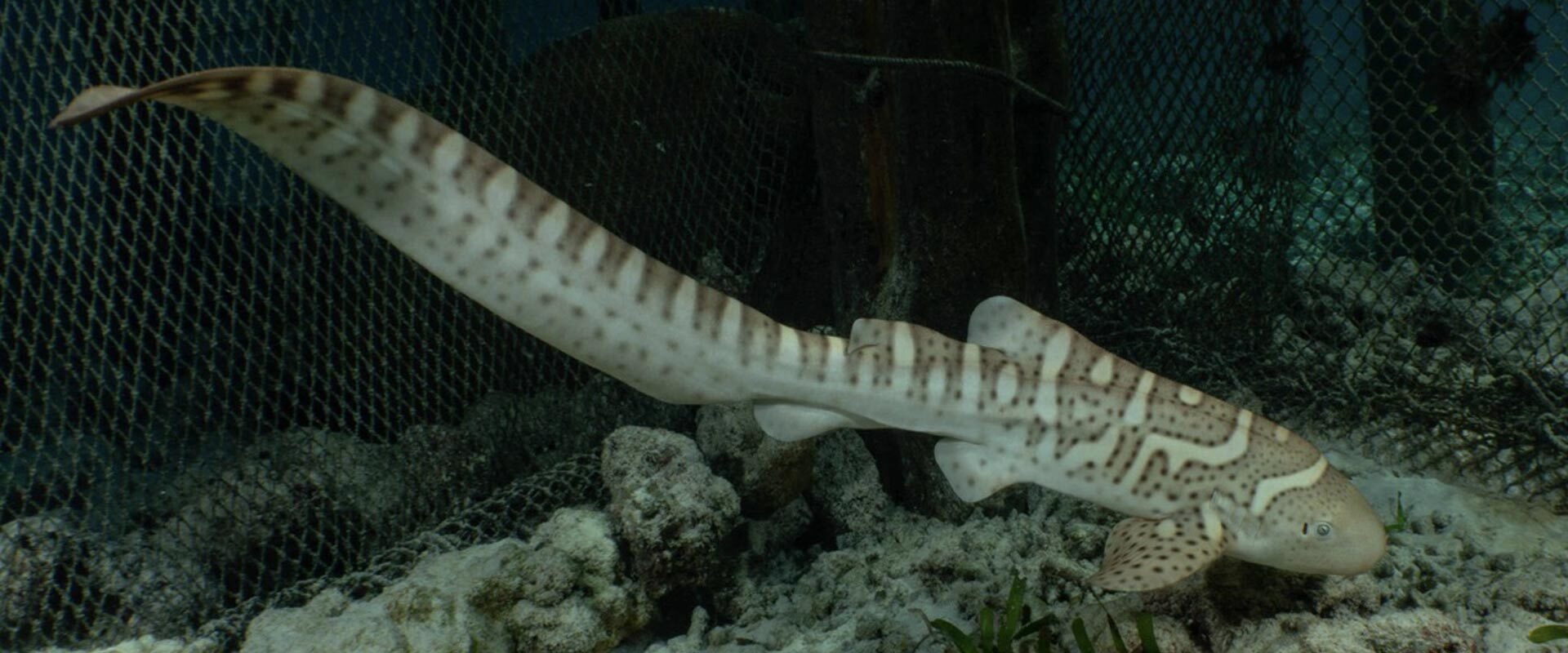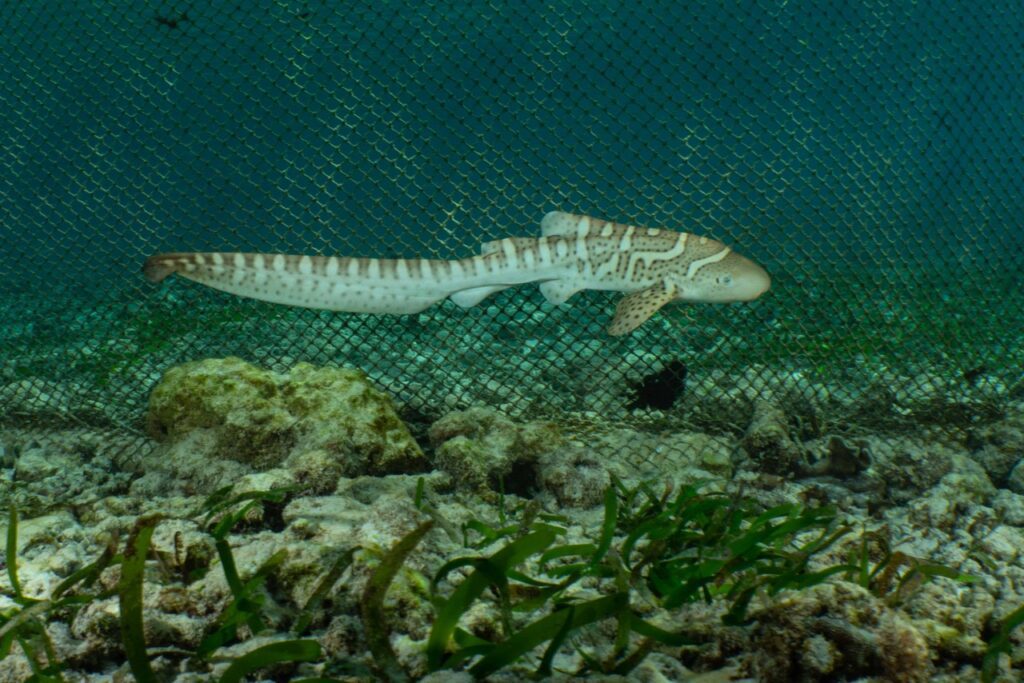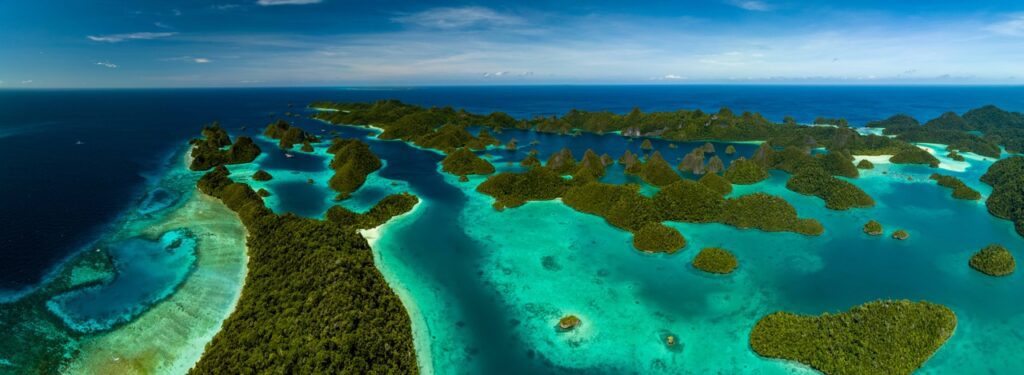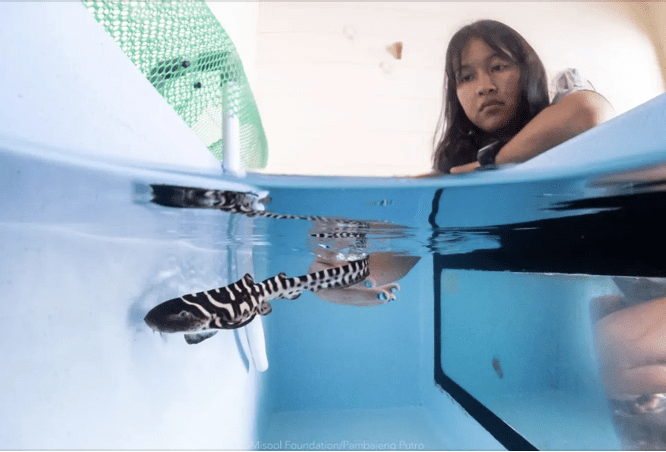StAR Project Update, part 4 by Made Abiyoga Udaya
This is part 4 of the series.
Administrator’s note: In September of 2021 we first introduced the ambitious StAR project, which will hopefully re-wild Raja Ampat with the charismatic Zebra Shark. The project is international in scope with aquariums from all over the world donating and transporting viable Zebra Shark egg cases to two of Indonesia’s Raja Ampat resorts for hatching, rearing, tagging and release. These sharks were once common in the region but shark finning reduced their numbers and the population is currently believed to be so low and so geographically fragmented that it can not recover like other shark species have since Raja’s shark fishing ban went into effect in 2013.
Made Abiyoga Udaya writes:
Since the project’s take-off, at the official launch event in November of last year, the StAR team has been moving rapidly on the ground. With the sharks continuously growing at a healthy rate, the team has had a busy month preparing the sharks for the next phase. This period provided the shark aquarists with the opportunity to broaden their knowledge on shark handling, and put their knowledge to the test while providing first-hand assistance in a critical procedure. Further, exciting announcements from the Misool hatchery reveal a massive milestone that calls for a celebration.
Continue reading as we dive into exciting announcements and updates from the StAR Project’s ground team at the Raja Ampat hatcheries.
(RARCC) Raja Ampat Research and Conservation Centre / Papua Diving
The three shark pups, Kathlyn, Audrey, and Charlie, have shown significant growth over the last few months. All three pups have now grown to over 70 cm/27in, fulfilling requirements set by the IUCN Shark Specialist Group, making them eligible to move on to the next phase of rearing – the transfer into the sea pen.
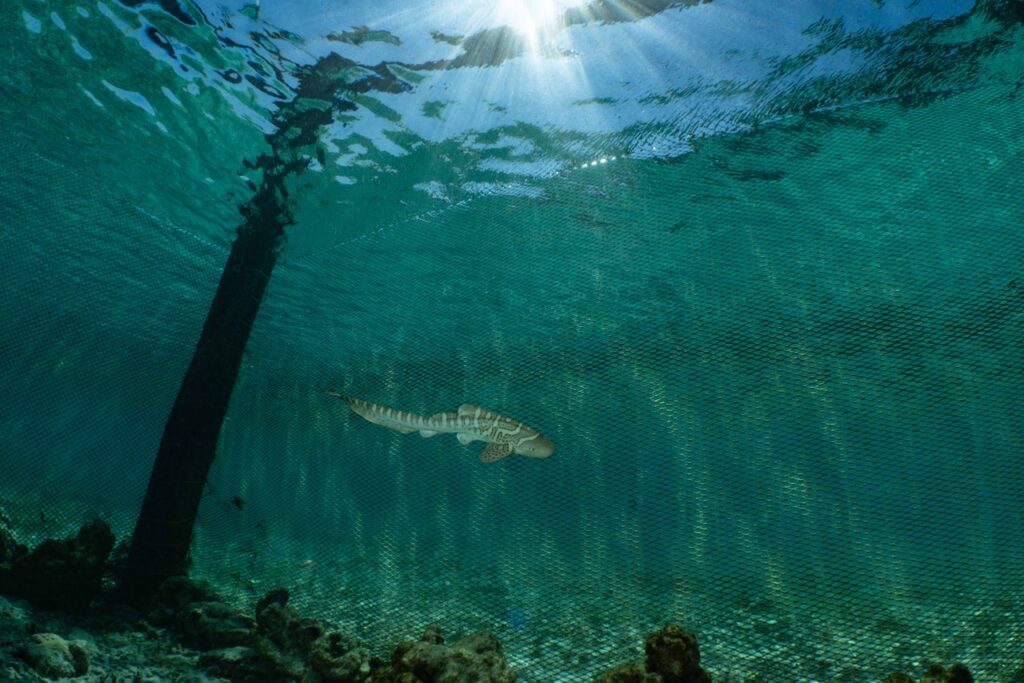
“Out of the nursery and into the pen” The first pup equipped with RFID tag swims happily in it’s new sea pen at RARCC/Papua Diving
Though it seemingly sounds like a simple process, transferring a zebra shark from a tank into a sea pen takes into consideration various precautions and careful planning. Preparation for this transfer requires approximately 4 weeks, where the shark aquarists, and project scientists and vets gather to plan and execute the tagging, health monitoring, and finally the transfer of the shark pups. In late November, the three sharks were equipped with Radio Frequency Identification (RFID) tags, placed at the base of their dorsal fin. This tag, when read and recorded by an RFID reader, would display the unique identification number of each shark – a highly useful identification tool. Despite the fact that zebra sharks have unique skin patterns that can be used to identify individuals (just like human fingerprints), the patterns on these young sharks are currently still morphing until they reach an approximate length of 1.7 metres/5.5ft.
At 2 weeks post-tagging, the sharks have shown stable health with no signs of behavioural changes as a result of the RFID tag insertion. Jaya Ratha, head of the Indonesian Veterinary Working Group called the decision to follow through with the insertion of the acoustic tag. As the insertion process requires a highly coordinated team, the aquarists all assisted in the tagging of the sharks. Prior to the procedure, the aquarists were also given a detailed lesson on shark incision and suturing methods, as well as a brief on task delegation in the tagging process. For the aquarists, this was an invaluable experience that required their full focus, composure, and best handling skills. A rapid 8 minutes flew by and the sharks were once again, swimming peacefully in their respective tanks. It is very important to note that sharks have amazing healing capacities, which serve them well during recovery from injuries. The recovery process for the 3 pups took a mere 9-12 days from the day of tagging, to the day that the wound was fully healed.
Notes on tagging and monitoring: The Wayag Lagoon, one of the target sites for the sharks’ release, has a series of 17 acoustic receivers currently used to monitor the local manta ray population. By equipping the shark pups with acoustic tags, the field team will be able to track and monitor their movement patterns within the lagoon. This process, known as post-release monitoring, is one of the IUCN Conservation Planning Specialist Group’s requirements for a conservation translocation project such as StAR.
Misool Foundation / Misool Resort
Down on the southern side of Raja Ampat, the shark aquarists at the Misool hatchery have been carefully monitoring 2 eggs; 1 from Las Vegas, USA and the other from Sydney, Australia since their arrival at the facility in November and December 2022 respectively. After over a month of anticipation, during a casual lunch break on the 17th January 2023, excitement filled the room as a head emerged from one of the egg cases, and their very first shark successfully hatched – a major milestone for Misool and their aquarists! A feisty female with an amazing personality, Mali is an avid snail hunter from the get go. Exactly two weeks later, on the 31st January 2023, another female pup hatched. Energetic as they get, and constantly exploring her tank, Shannon melted everyone’s hearts with her heart-shaped extra anal fin.
Currently, the in-house aquarists are working at full effort to ensure that the two young pups can grow healthily without any setbacks. Feeding regimes have been maintained accordingly and pup growths are continuously monitored and recorded. It’s a round-the-clock job, yet it truly fulfils the passionate hearts of aquarists. The guests at the resort have also been paying the sharks daily visits, to which the sharks are reacting very well.
Watch this space for more updates as we swim into a momentous new phase of the project!
Administrator’s notes:
1. National Geographic will be first to report on the initial release of the sharks. Look for their report in their on-line magazine very soon.
2. We are so fortunate to have “Abi” join the team. He will be reporting on StAR and ReShark as the project continues to progress.
Made Abiyoga Udaya, is 22 years old, from Bali, Indonesia. He is the Research and Conservation Officer from Thrive Conservation, currently based in Bali. His formal educational background is Marine Biology, though he went straight into conservation after graduating. He joined Thrive in October 2021, after reaching out to them via email and being adopted as an intern! We are so fortunate to have “Abi” join the team. He will be reporting on StAR and ReShark as the project progresses.










